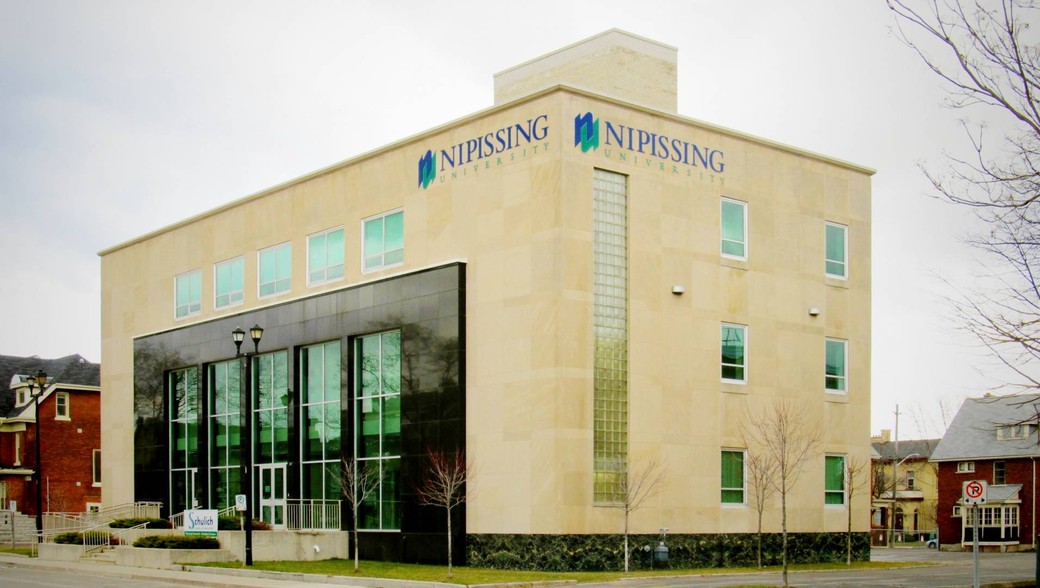
BLUE WATER: RBC’s Commitment to Canada’s Aboriginal Communities
In July 2009, the RBC Foundation awarded a grant of $500,000 to Peterborough’s Trent University as part of the RBC Blue Water Project. These funds were allocated to further the development of the Protecting Drinking Water in Indigenous Communities in Canada’s North Program, an initiative created to provide Aboriginal reserves access to clean drinking water. RBC’s is commited to improving economic and social conditions in Canada’s Aboriginal communities through a variety of measures.
Ever since it opened its first branch in a First Nations community in 1991, RBC has been focused on developing comprehensive financial services for Aboriginal peoples, businesses and organizations. Recognizing that Aboriginal communities and individuals have distinctive needs that often require unique financial services, RBC has expanded its partnership with Canada’s Aboriginal peoples to encompass regional, national and international business opportunities. Today, there are eight RBC branches located on reserves in British Columbia, Manitoba, Ontario and Quebec, as well as six branches located in the Northwest Territories, Nunavut and the Yukon.
“Aboriginal economic development, access to banking services and credit… employment, training and education are deeply and intricately intertwined in the pursuit of community prosperity,” asserts Gordon M. Nixon, the company’s President and CEO. “At RBC, we are consulting with Aboriginal communities and their leaders to help create economic opportunities that benefit not only Aboriginal peoples, but the Canadian economy as a whole.”
While RBC’s commitment to satisfying the financial needs of its Aboriginal customers is admirable, it is the dedication to community and social development that truly characterizes its relationship with Canada’s Aboriginal peoples. The RBC Blue Water Project, founded in 2007, is a 10-year, $50 million philanthropic commitment in support of charitable organizations that protect watersheds and ensure access to clean drinking water. The company awards grants to organizations with both an international and a domestic focus, but there is a particular interest in groups committed to improving the conditions in rural and Aboriginal communities.
Trent is one such organization with a great interest in Canada’s Aboriginal communities. The university, in collaboration with Peterborough’s Fleming College, obtained a grant from RBC after the Blue Water Project Advisory Panel determined that their proposal satisfied the main principles of the project’s grant component.
Dr. Chris Metcalfe, the director of Trent’s Institute for Watershed Science and the head of the Protecting Drinking Water project, explains that Trent’s main focus is on implementing the source water protection plan throughout specific communities in the Yukon, the Northwest Territories and Nunavut. By taking a multi-barrier approach to minimize the impact of threats to the water distribution systems in Canada’s north, Trent is also trying to reduce the dependence on the machinery currently used to treat the drinking water.
“There is too much of a reliance on technology these days,” argues Dr. Metcalfe, “and when the technology doesn’t work, that’s when we have a problem.”
In addition to protecting the sources of drinking water, Trent helps to provide course curriculum material to the environmental studies programs of three community colleges across the territories – Yukon College, Aurora College in the Northwest Territories and Nunavut Arctic College. Dr. Metcalfe affirms that educating Canada’s Aboriginal peoples about the implementation of a source water protection plan is just as important as the implementation itself.
Just one year into what Dr. Metcalfe expects to be “a four- or five-year project,” Trent will continue to work concurrently with RBC to satisfy the needs of the Aboriginal communities they serve. As Dave McKay, RBC’s Group Head of Canadian Banking, explains, “as a business leader and as a Canadian, I can’t imagine a more important legacy for our country than to partner with Aboriginal communities, businesses and organizations to help them realize the goals they set for themselves.”
In 2009, RBC helped finance projects across Canada worth over $39 million, ranging from a cultural centre in British Columbia and a hockey rink in Alberta, to a health centre in Ontario and a community hall in Saskatchewan. While the RBC Foundation also donated $2.2 million to organizations supporting Aboriginal communities, its greatest contribution to Canada’s Aboriginal peoples is through the RBC Blue Water Project. RBC wants to be there to help, fostered by a belief that fresh drinking water should be accessible to all. RBC is driven by its unwavering commitment to community and social development in Canada’s Aboriginal communities.









